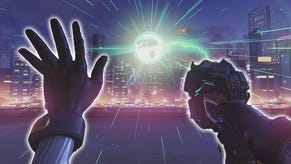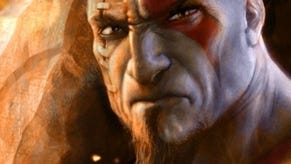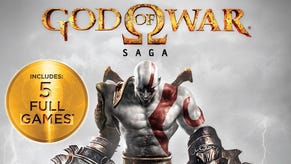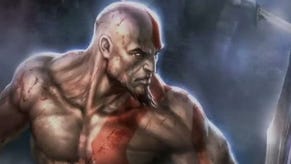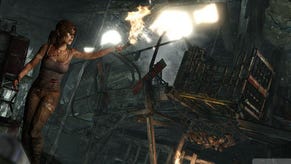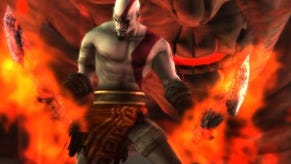God of War: Ghost of Sparta
Hera go again.
If a myth grows in the retelling, then small wonder Kratos is Sony's biggest hero today. God of War's muscle-bound fighter has taken on gods and monsters in six outings now and, while the heavenly cast of Olympia in each has rotated, the core message of the series has stood resolute, only amplifying with repetition. These are hack and slash games that prize spectacle over mechanical fussiness, experiences that shroud solid but simple systems in jaw-dropping set-pieces, screen-filling Homeric visions that strike fear in the heart and mind, in much the same way they did for the Grecians three thousand years ago.
Ghost of Sparta, then, is as predictable as it is mesmerising; a game that pushes its nose up against the PSP's technological boundaries with a sense of urgency and pressure few others could muster. As with its predecessor, Chains of Olympus, the game offers a spectacular voyage, its narrow yet honest take on Greek mythology brutal and expressive as the game seeks to establish its hero's back-story as he journeys to find his brother, Deimos.
As with every other entry to the series, the game sets its tone and pace in its opening moments: Kratos' galleon is caught in an ocean tempest, the screen a bluster of blur effect water pixels and lightning cracks. Men are swept overboard while giant eels with teeth plucked from an H R. Giger nightmare rise from the blue-grey depths, lean over the hull and snap those shipmates who managed to steady themselves in two.
Moments later the first half of Homer's sea monster double act, Scylla and Charybdis, breaks the water. Half-obscured by a sea mist knocked up by the slapping of its slime tentacles on the ocean surface, it fills the PSP screen with its bulk, repeating its attack pattern till you learn when to jump, dodge and counterattack it back into the watery depths. Plumes of blood spurt forth a hail of orbs, assaulting your mind with points-based reassurances that scream: 'you're doing well; definitely keep going.' So far, so Spartan.
Despite having lost the rest of his armory, Kratos' starts the game with his trusty - and now oft-copied – Blades of Athena, chained edge weapons that can be slung out to nick at enemies at near and far range. Two basic attacks – light and heavy – can be strung together into combos as you bat away creatures of myth. As you progress Kratos gains new weapons and the potential for seamless mid-combo weapon-switching makes elaborate and exciting strings of attacks both straightforward and watchable.
Soon you gain the use of magic in the game, a stab of the d-pad causing an eruption of electric blue electricity to shoot forth. Then, once you defeat the tormented Thera, you can add fire elemental damage to your standard attacks by holding down the right shoulder button. Some enemies and puzzles can only be overcome with attacks augmented in this way, requiring something of a feat of manual dexterity, but one that is nevertheless satisfying.

